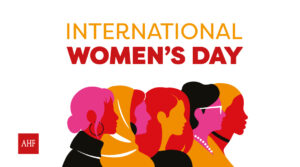A research team evaluated the effectiveness of using a single drug, rather than a combination of three or more, to treat HIV in people with early infection.
Thus, the drug dolutegravir proved to be an effective long-term maintenance regimen in people who had started treatment soon after acquiring HIV, according to a small study published in the journal Clinical Infectious Diseases.
Those who received dolutegravir alone as antiretroviral therapy had no treatment failures, and their immunological and virological levels remained stable during the four years of follow-up.
These findings suggest the possibility of using a single drug therapy (monotherapy) based on dolutegravir for a select group of people with HIV, although there are some considerations.
Effective early stage
Due to its high efficacy, dolutegravir has been tested several times as monotherapy, notes the Aidsmap website, specialized in HIV. However, these attempts had always led to a long-term loss of efficacy.
Unlike previous studies, the aforementioned research examined the possibility of maintaining monotherapy specifically in people who had started treatment very early (within the first six months after infection) and who had remained with an undetectable virus level.
Those who start treatment during this stage, known as primary infection, have a less diverse group of viruses, better immune system recovery, and possibly a smaller virus reservoir (a sort of “hideout”), which they say the authors, could have contributed to the efficacy of monotherapy in this group.
In search of a simpler treatment
Not surprisingly, fewer drugs would mean lower costs, fewer side effects, and potentially fewer long-term harmful effects. The monotherapy strategy in HIV had already been tried before with another class of drugs called protease inhibitors, but the results obtained had always been very poor.
The study in question reinforces the idea that dolutegravir is a very powerful drug and that people treated early can have different responses. However, weak results from earlier studies and a lack of evidence of efficacy outside of this study mean that dolutegravir monotherapy is not worth the risks for most people with HIV.
The most serious risk is developing resistance to drugs in the dolutegravir class, the integrase inhibitors, as has been seen in previous studies, rendering that entire class of drugs ineffective for the person. Since integrase inhibitors are central to current HIV treatment, this would significantly limit treatment options.
And this approach presents another major challenge: Identifying people early in infection is neither easy nor reliable, as there are no studies that can definitively show when a person acquired the virus.
Some other HIV researchers also noted the very small number of participants (101 people). This makes the possibility of error very real; a larger study may not be able to replicate the same results.
The study and its findings
In the trial, Dr. Emily West and colleagues at the University of Zurich worked with a Swiss cohort of people with HIV who had started triple drug therapy during primary infection (defined as the first six months after acquiring HIV). ).
Participants must have had undetectable levels of virus for the previous 48 weeks. Other requirements included that they had no treatment failures, treatment interruptions or significant resistance to integrase inhibitors.
From 2015 to 2017, 101 participants were enrolled in the study, of whom one third continued on their standard therapy, while the other 68 switched to dolutegravir monotherapy.
Following analysis at 48 weeks showing 100% viral suppression with monotherapy, the study team decided to extend follow-up for another three years. At week 96, the research team gave permission for people to switch between standard therapy and monotherapy if they wanted.
Throughout the study, levels of immune cells (CD4 cells) remained high and tended to gradually increase, and there were no significant differences between groups.
At 48 weeks, the HIV reservoir appeared to decline faster on monotherapy compared to standard therapy, but at four years there was no significant difference.
Personalized approach
While the results reported in this detailed study are very encouraging, they only demonstrate that different groups of people with HIV may benefit from different, more personalized approaches. They also broaden the understanding of what is possible in terms of HIV treatment. However, many previous studies indicate that monotherapy, including dolutegravir-based monotherapy, does not appear to be a viable option for people with HIV in general.
In any case, the important thing is that everyone who needs it gets the most effective antiretroviral treatment possible. If you have received an HIV diagnosis and have not started your treatment, at AHF Latin America and the Caribbean we can help you. Look for our offices in your country or write to us by Whatsapp to find out more.
“






